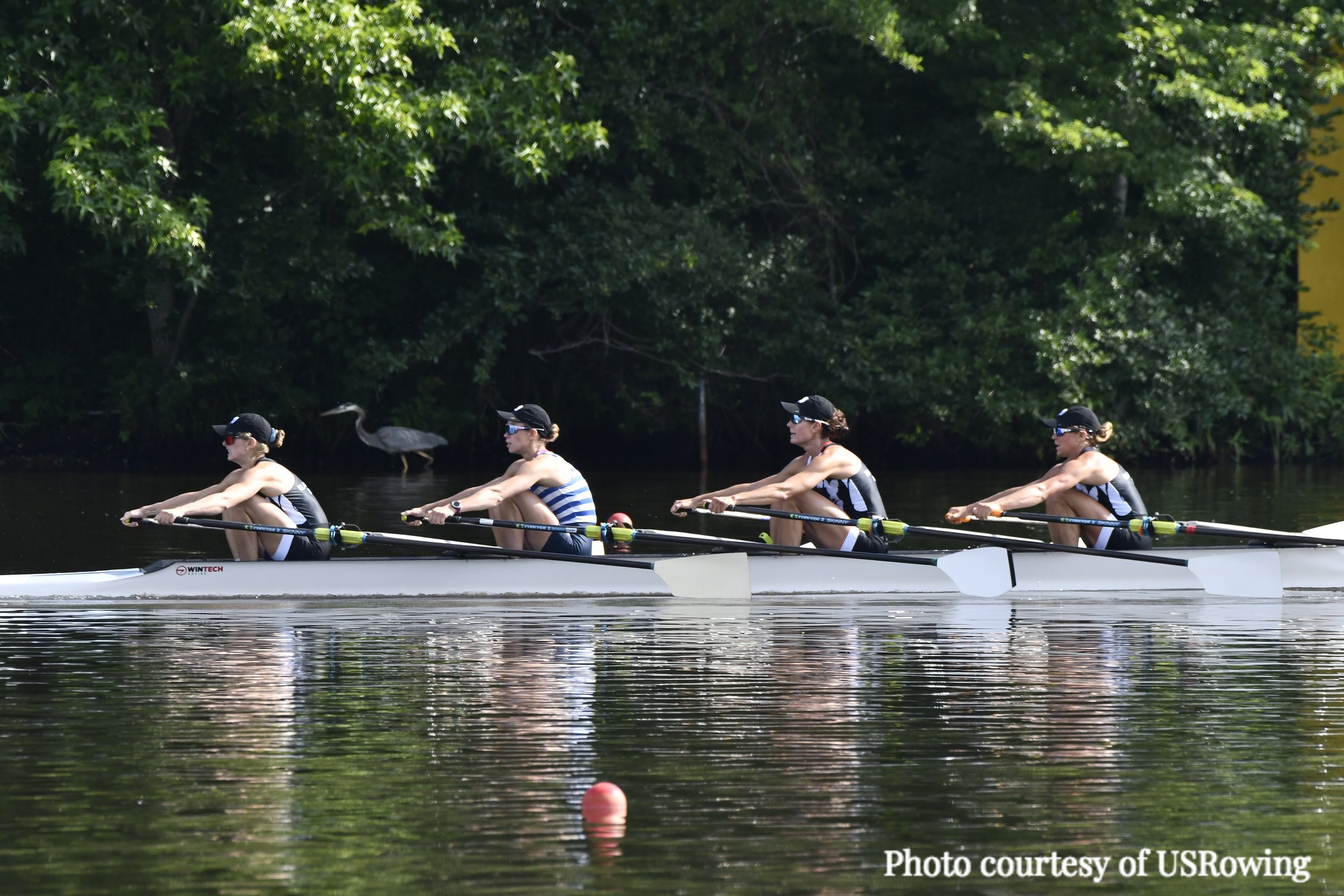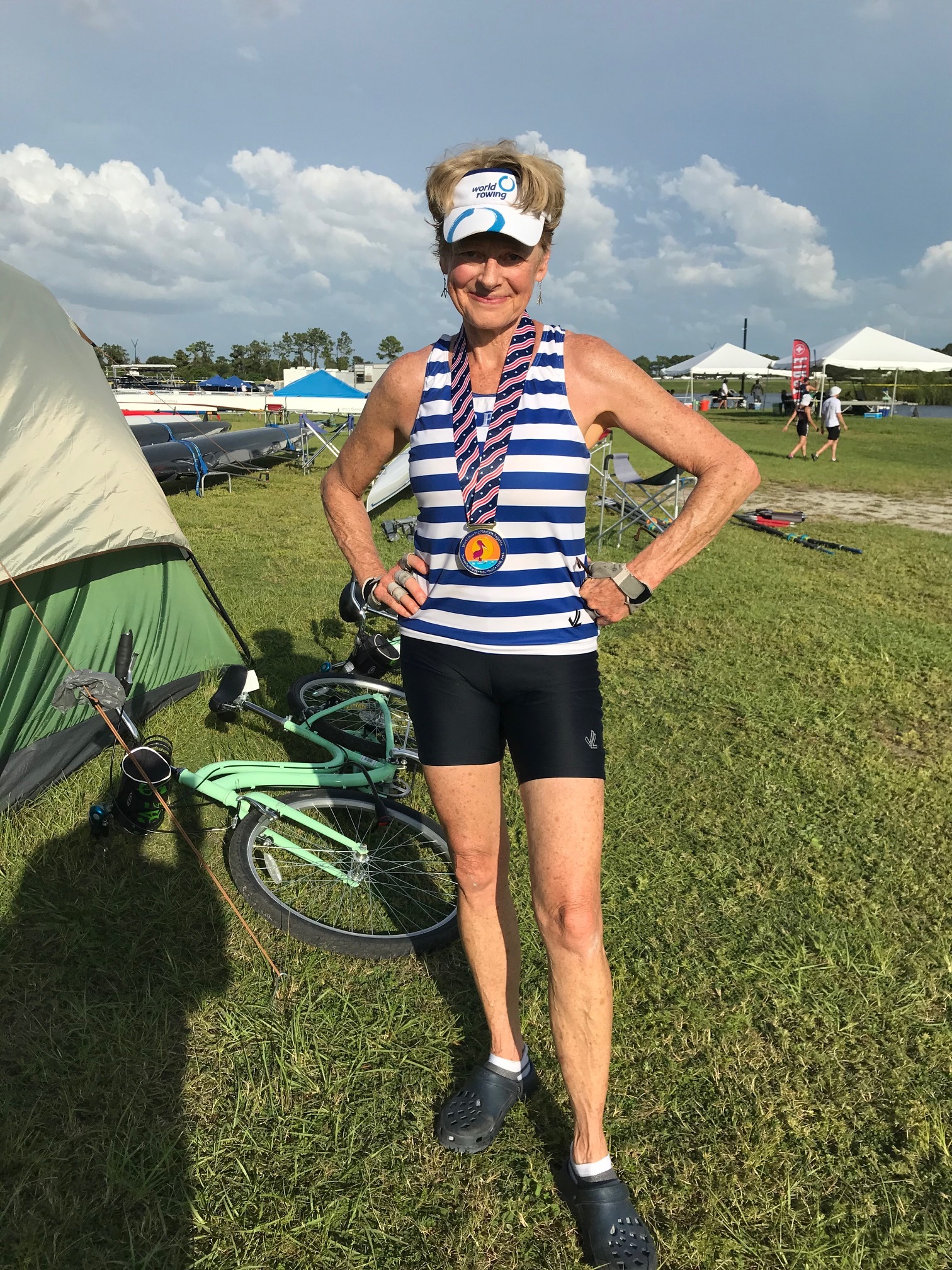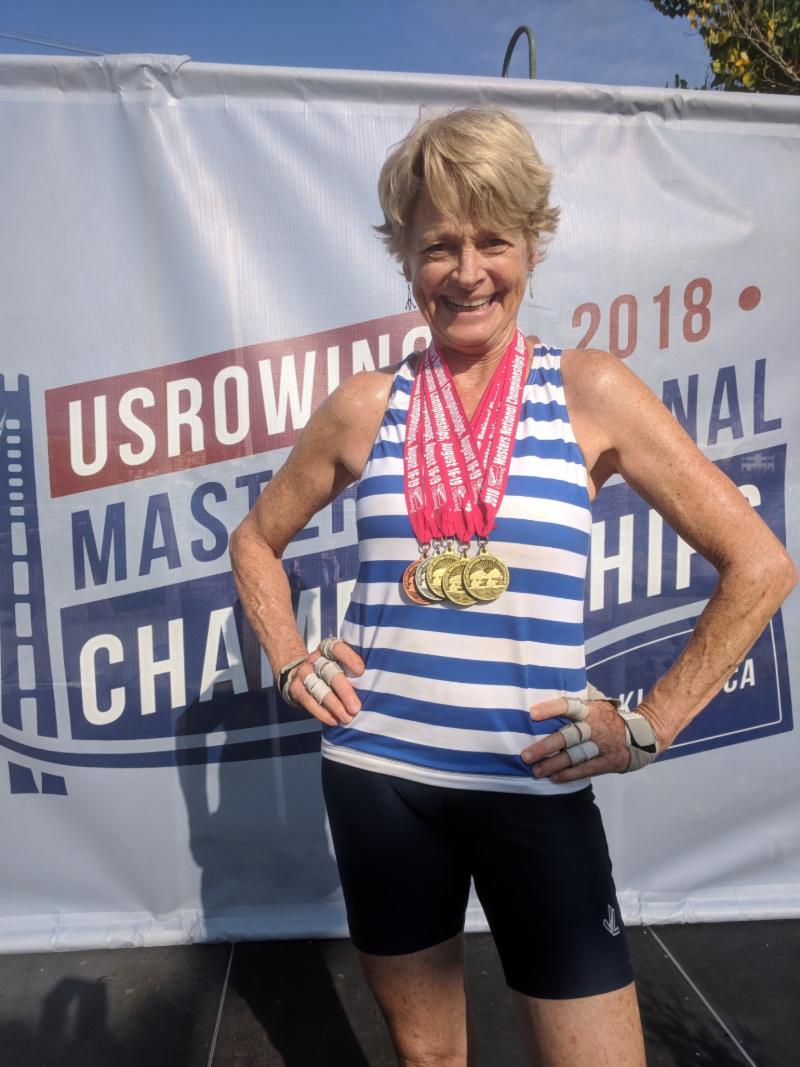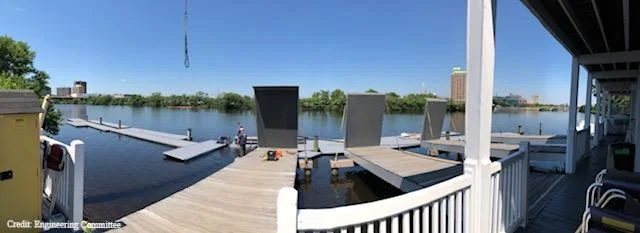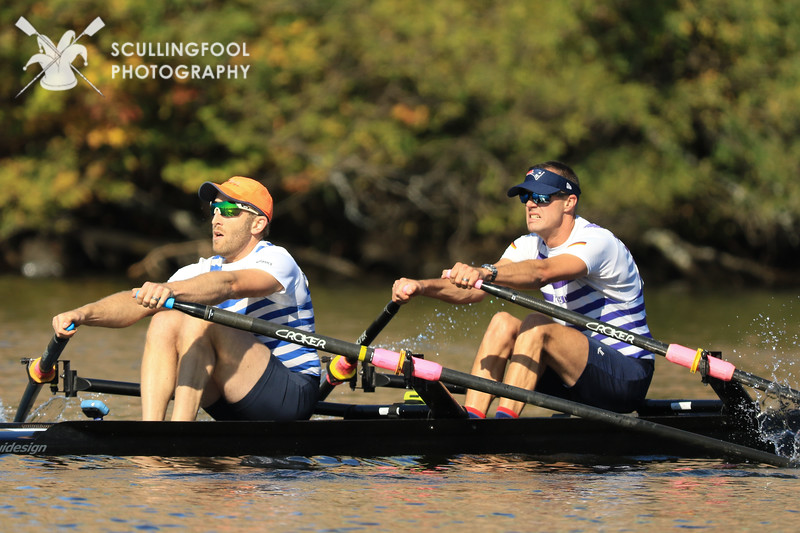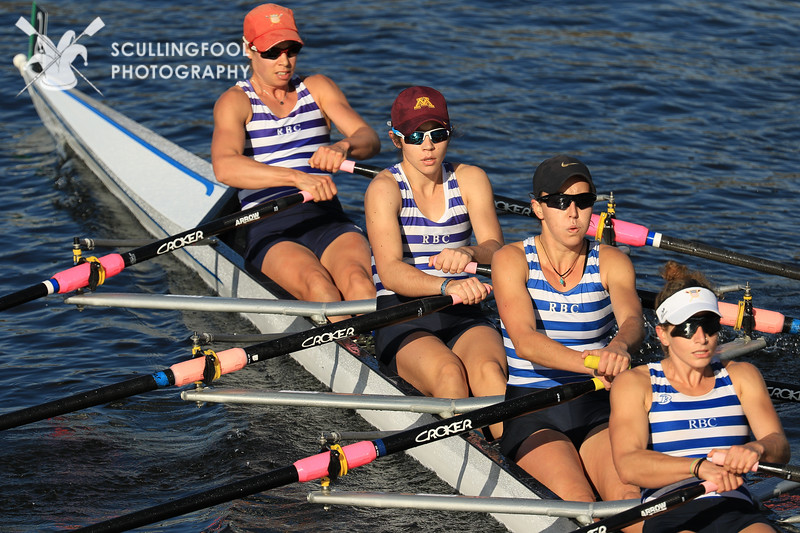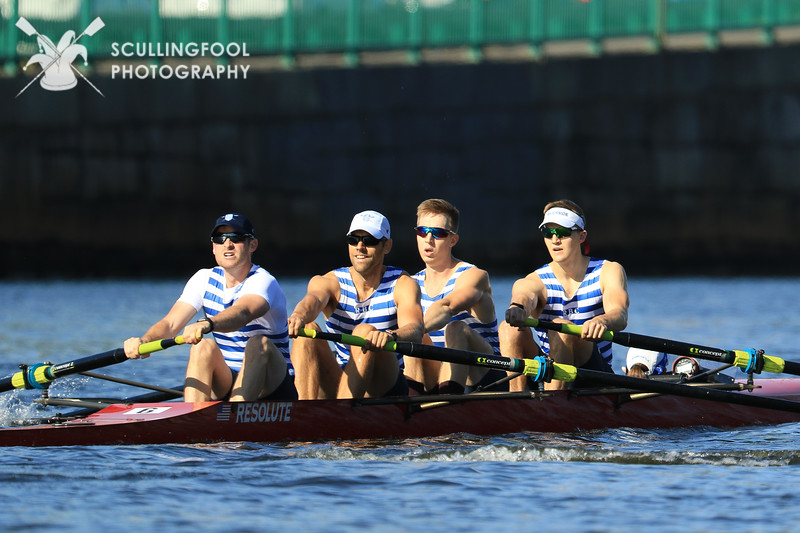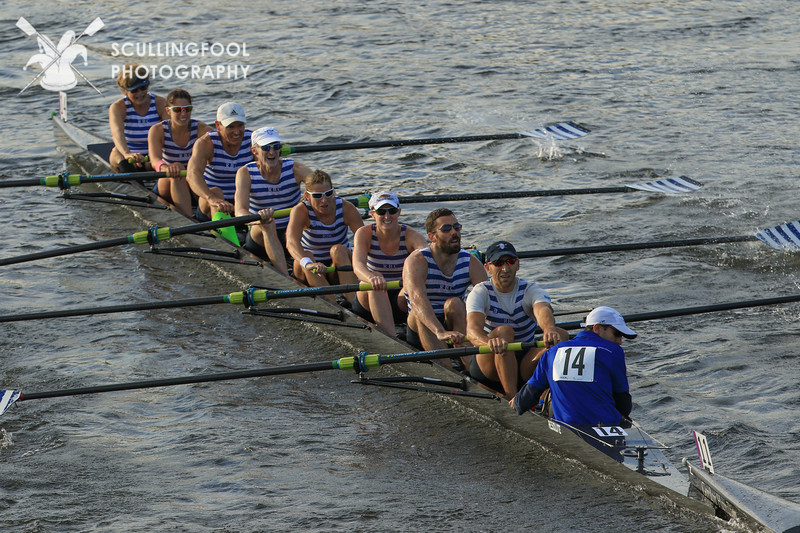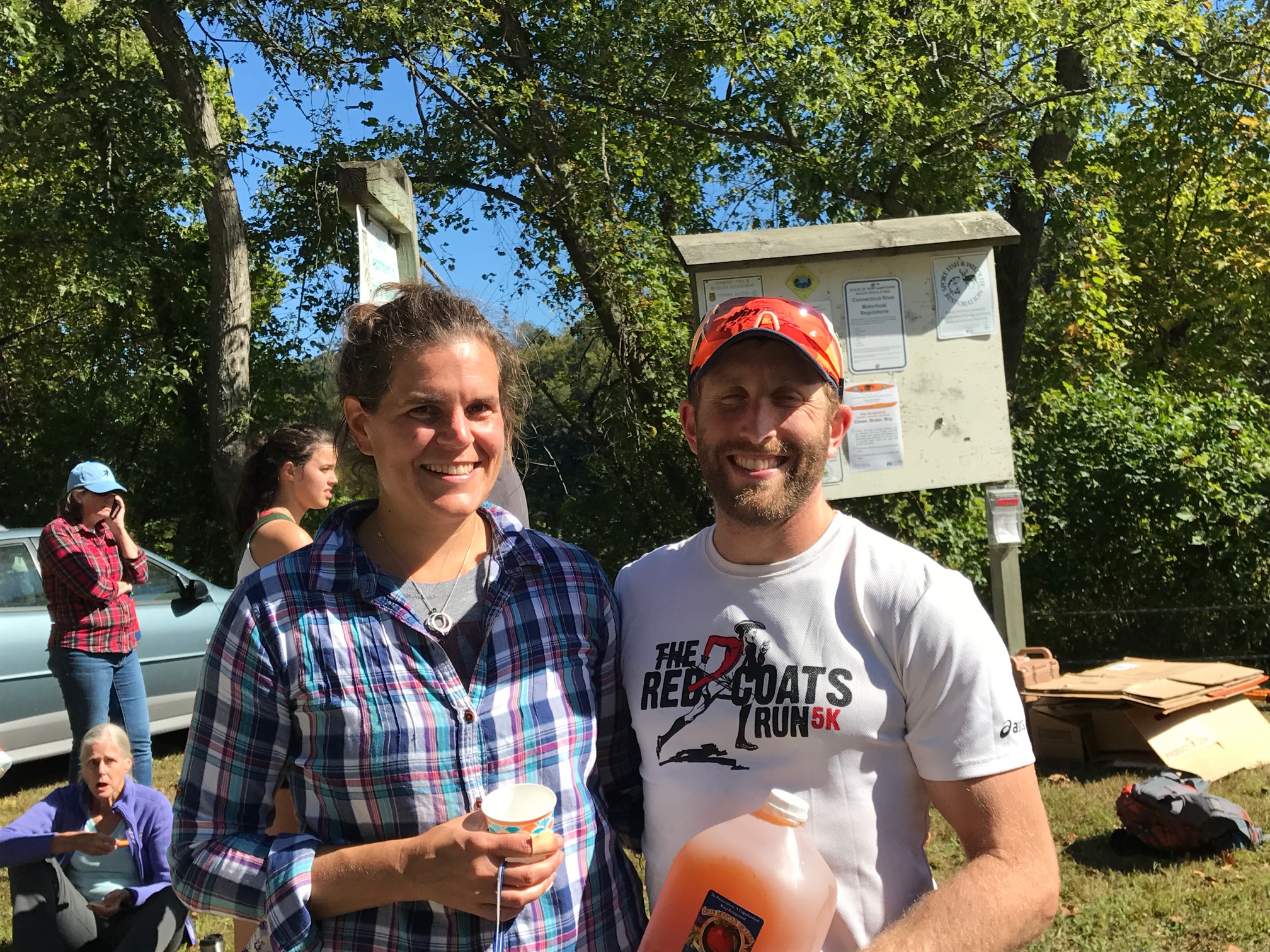Sager and Zieff have been best friend and training partners for six years, since they first started rowing together at Trinity College. That relationship continued through last year’s World Championship, where they raced for Team U.S.A in the lightweight women’s quad.
This year, they won their qualifying final with a time of 7:28.11, well ahead of Vesper’s second place 7:36.75
They say this year’s win is a culmination of years of hard work.
“It’s been truly inspiring to be supported and pushed by the entire boathouse,” says Zieff. “It’s been giving us confidence and I think it shows in our performance at Trials.”
Keavin Meador took an unconventional route to racing the men’s single. Before winning his event to qualify for World’s, Meador raced in the fall of 2017 with the men’s sweeps team and won the club 8+ event at the Head of the Charles. Meador only began full-time training for single’s events this past year.
Following the National Selection Regatta and an injury that took him off the water for six weeks, Meador returned to the single two weeks out from Trials. Despite the fact that this was only his second sprint-race in a single, he won his time trial, his heat and came in second place in the semi-final.
Meador then won his final to qualify for Worlds at 7:02.59, more than a full second ahead of Malta Boat Club in second, and five seconds ahead of Vesper in third.
“I am very excited for this opportunity to race internationally,” he says. “I hope to do every possible thing in my power to make Riverside proud.”
